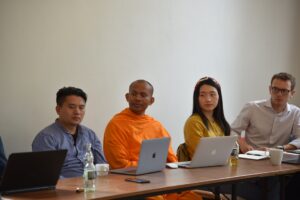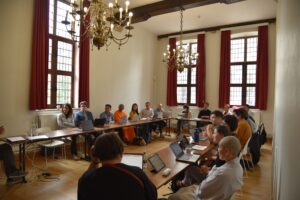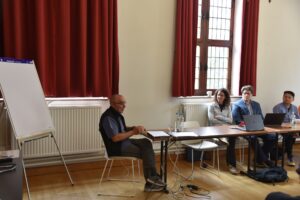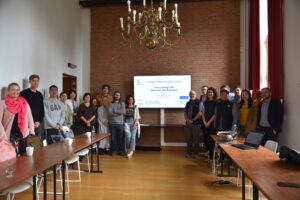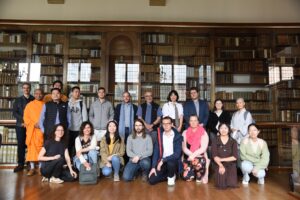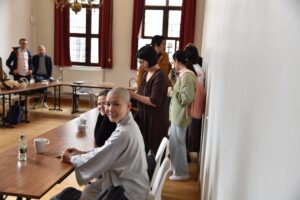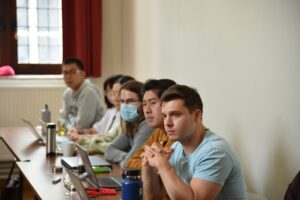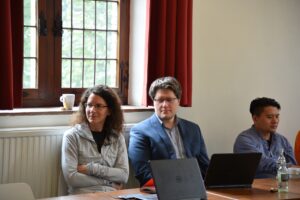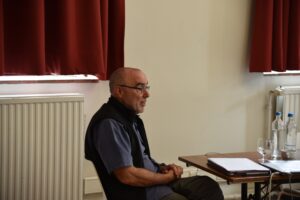Abstract: This (on campus) course is aimed at PhD students and will focus on the rise and success of Chan Buddhism (known in Japan as Zen) in medieval China. It will cover (1) Indian and Chinese doctrinal antecedents; (2) the emergence of new modes of ritual and literary expression, drawing from both Indian and Chinese exemplars; and (3) the specific contributions of the “public case” literature (gong’an, Japanese kōan) to ongoing philosophical controversies that galvanized the medieval Buddhist scholastic community.
We are pleased to announce the following Doctoral School at Ghent University: “Demystifying Chan (Japanese: Zen) Buddhism”
Date: July 4-8, 2022
Venue: Het Pand (Ghent University)
Organizing committee: prof. dr. Ann Heirman, prof. dr. Christoph Anderl, prof. dr. Anna Andreeva (Ghent University)
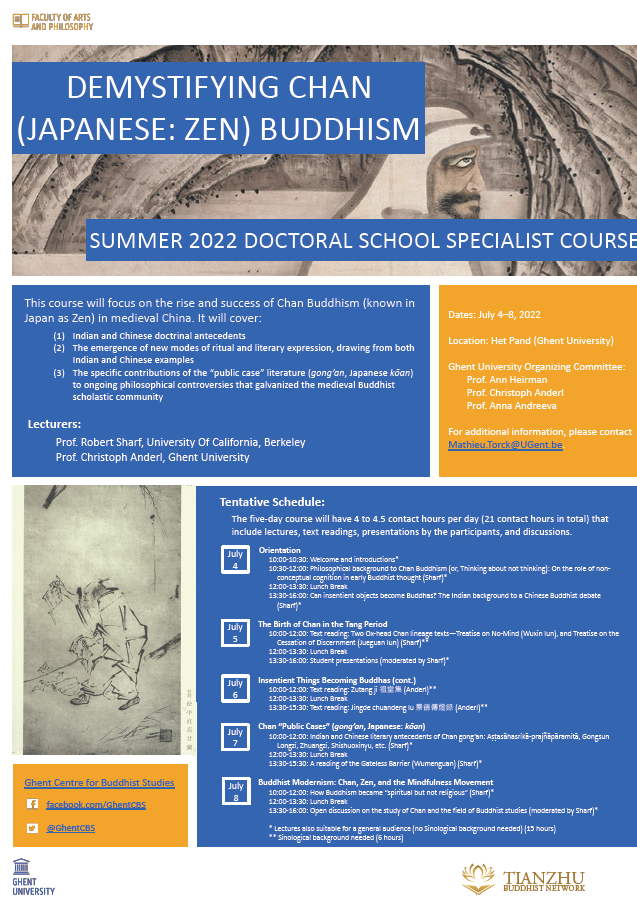
Description
This (on campus) course is aimed at PhD students and will focus on the rise and success of Chan Buddhism (known in Japan as Zen) in medieval China. It will cover (1) Indian and Chinese doctrinal antecedents; (2) the emergence of new modes of ritual and literary expression, drawing from both Indian and Chinese exemplars; and (3) the specific contributions of the “public case” literature (gong’an, Japanese kōan) to ongoing philosophical controversies that galvanized the medieval Buddhist scholastic community.
Thanks to the generous support of the Tianzhu foundation, we are pleased to award up to 800 Euros in travel remuneration for a maximum of 5 international PhD
students. This money can be used for travel, accommodation, and meals. To apply for this travel grant, please send a one-page motivation letter and your CV
to Mathieu.Torck@UGent.be by April 20. The selected candidates will be notified by May 1. Candidates who are not selected for the travel grant may still participate on their own means depending on the available places (inquiries should sent to the same e-mail address).
Lecturers
Prof. Robert Sharf, University of California, Berkeley.
Prof. Christoph Anderl, Ghent University
Tentative schedule
The five-day course will have 4 to 4.5 contact hours a day (21 contact hours all together) that include lectures, text readings, presentations by the participants, and
discussions.
Monday, July 4: Orientations
10:00-10:30: Welcome and introductions*
10:30-12:00: Philosophical background to Chan Buddhism (or, Thinking about not thinking): On the role of non-conceptual cognition in early Buddhist thought (Robert
Sharf)*
12:00-13:30: Lunch Break
13:30-16:00: Can insentient objects become Buddhas? The Indian background to a Chinese Buddhist debate (Robert Sharf)*
Tuesday, July 5: The Birth of Chan in the Tang Period
10:00-12:00: Text reading: Two Ox-head Chan lineage texts—Treatise on No-Mind (Wuxin lun), and Treatise on the Cessation of Discernment (Jueguan lun) (Robert
Sharf)**
12:00-13:30: Lunch Break
13:30-16:00: Student presentations (moderated by Robert Sharf)*
Wednesday, July 6: Insentient Things Becoming Buddhas cont.
10:00-12:00: Text reading: Zutang ji 祖堂集 (Christoph Anderl)**
12:00-13:30: Lunch Break
13:30-15:30: Text reading: Jingde chuandeng lu 景德傳燈錄 (Christoph Anderl)**
Thursday, July 7: Chan “Public Cases” (gong’an, Japanese: kōan)
10:00-12:00: Indian and Chinese literary antecedents of Chan gong’an: Aṣṭasāhasrikā-prajñāpāramitā, Gongsun Longzi, Zhuangzi, Shishuoxinyu, etc.
(Robert Sharf)*
12:00-13:30: Lunch Break
13:30-15:30: A reading of the Gateless Barrier (Wumenguan) (Robert Sharf)*
Friday, July 8: Buddhist Modernism: Chan, Zen, and the Mindfulness Movement
10:00-12:00: How Buddhism became “spiritual but not religious” (Robert Sharf)*
12:00-13:30: Lunch Break
13:30-16:00: Open discussion on the study of Chan and the field of Buddhist studies (moderated by Robert Sharf)*
* Lectures also suitable for a general audience (no Sinological background needed) (15 hours)
** Sinological background needed (6 hours)
Update: doctoral school pictures
